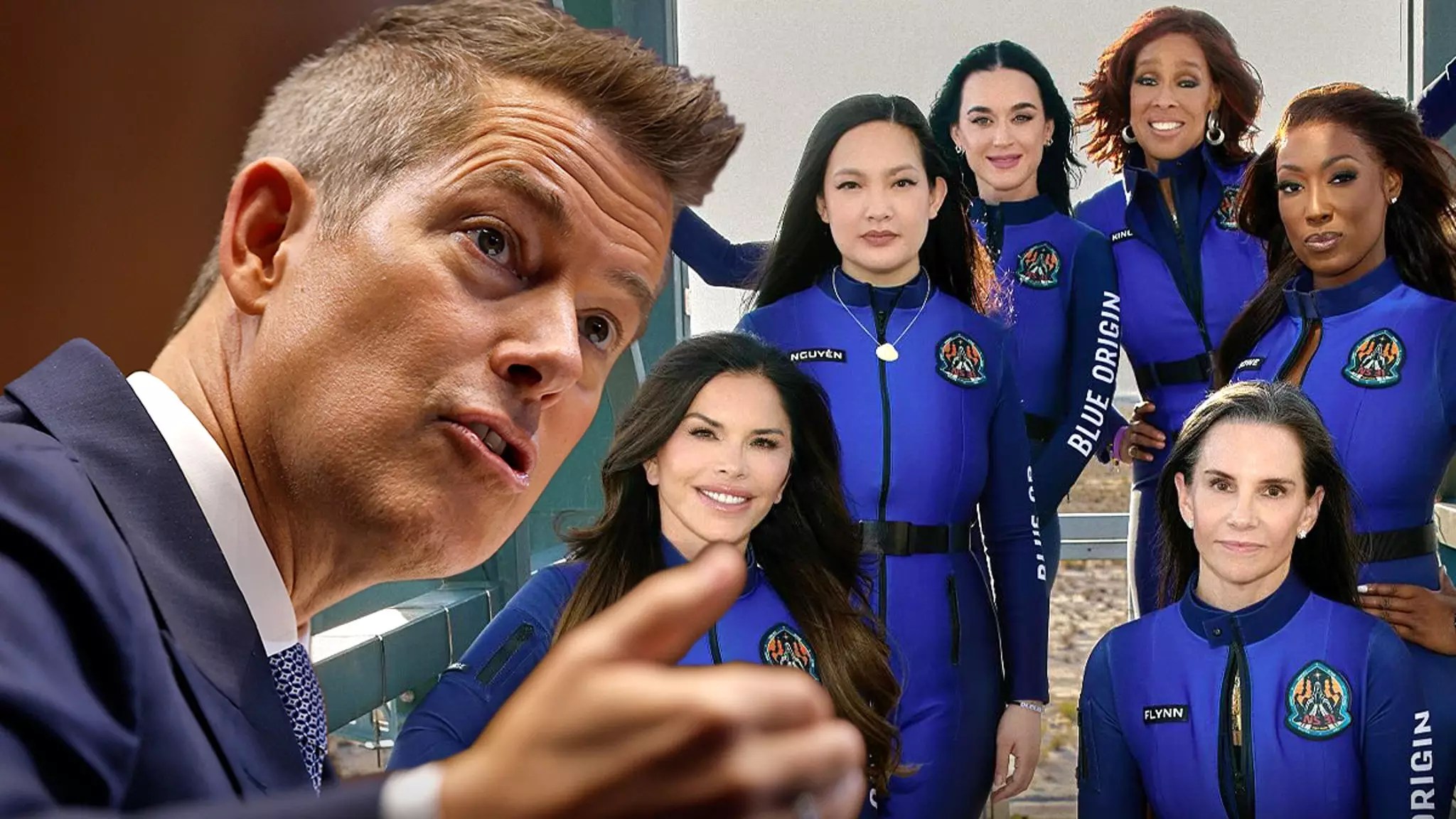In a world increasingly fascinated by the prospect of space travel, the recent excursion of several prominent women aboard a Blue Origin rocket has stirred a contentious debate about what it truly means to be an astronaut. U.S. Transportation Secretary Sean Duffy has stated that despite their breathtaking journey beyond the Kármán line—an altitude considered the boundary of space—these women do not meet the established FAA definition of astronauts. This statement raises profound questions about the evolving criteria for space travel, particularly in an era of commercial spaceflight.
Historically, astronauts have been defined by rigorous training and missions that include crucial activities related to human spaceflight safety. Yet, with the rise of commercial ventures like Blue Origin, the definition is becoming more nebulous. Duffy asserts that while the women who participated in the flight may be “brave and glam,” they did not engage in activities essential to public safety or the scientific advancement of space exploration. This perspective runs the risk of dismissing the significant cultural and social implications of their journey, which may extend beyond traditional metrics of astronaut qualifications.
Criticism and Celebration: The Dual Nature of Space Exploration
The flight sparked mixed reactions across social media, highlighting the tension between celebration and criticism of such high-profile space excursions. On one hand, some view the flight as a milestone for women in STEM and a celebration of human exploration. However, critics argue that it exemplifies the superficiality of celebrity culture, spending exorbitant amounts of money on luxury experiences when societal issues, such as poverty and food insecurity, remain pressing.
Celebrities and public figures have weighed in on the controversy, with Emily Ratajkowski and Olivia Munn expressing their disapproval of the trip, framing it as wasteful, given the current economic climate. Ratajkowski termed the mission “disgusting,” emphasizing the disconnect between the elite’s ventures and the everyday struggles faced by many American families. Munn’s sentiments resonate with a broader narrative that questions the ethical implications of such lavish expenditures in a world rife with challenges.
Yet, it’s vital to recognize that the pursuit of space exploration has historically been marked by luxury and exclusivity. The achievements of astronauts and space agencies often come with considerable investment. The distinction, however, is whether these flights contribute substantively to space research or are mere marketing gimmicks for private enterprises, a point that critics have made starkly evident.
The Future of Space Adventure: A New Frontier
Despite the criticism, proponents of the Blue Origin mission assert that these flights represent the dawn of a new era in space exploration. Jessica Alba’s suggestion that the ire should be directed at larger systemic issues, rather than the individual participants, reveals an understanding that the complexities of space travel extend beyond celebrities. This perspective underscores the need for a broader discourse that includes economic ramifications and environmental impacts, both of which must be addressed as this industry evolves.
Moreover, Gayle King’s defense of the mission opens up a conversation about the positive ramifications of increased access to space. She emphasized that her flight does not detract from essential work on Earth, instead highlighting the potential for commercial space ventures to enhance scientific understanding and technological innovation. It’s a viewpoint that suggests that these endeavors can coexist with, and even benefit, sustainable efforts on Earth.
As commercial spaceflight continues to grow, the discussion around who qualifies as an astronaut and the purpose of such ventures will need to evolve. The increasingly democratized nature of space exploration, while still mired in controversy, holds the promise of inspiring future generations to explore and perhaps rethink their connection to the stars. The key challenge will lie in ensuring that these advancements do not come at the cost of pressing earthly concerns.
The divergence between the glittering world of celebrity space travel and the grounded reality of everyday life invites a reevaluation of our priorities as we venture into the frontier of space. As the narrative around space travel continues to shift, it remains imperative to question who gets to define the experiences and qualifications of those who dare to venture beyond our planet.







Leave a Reply